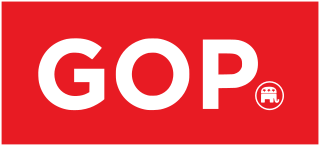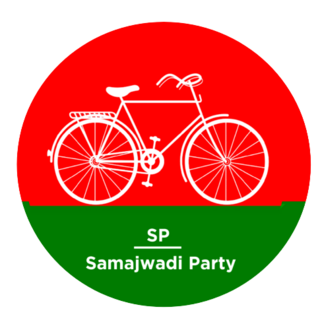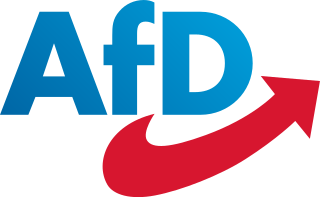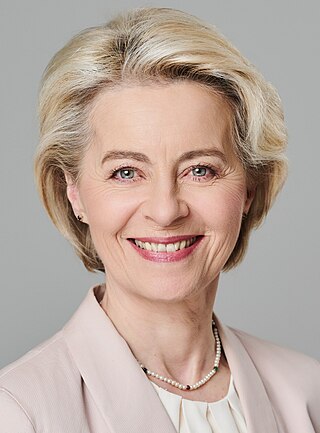 |
|---|
Decentralist Party of the South (in Spanish: Partido Descentralista del Sur) was a political party in Peru. It was founded in 1931. It publishes Nuestra Tierra .
 |
|---|
Decentralist Party of the South (in Spanish: Partido Descentralista del Sur) was a political party in Peru. It was founded in 1931. It publishes Nuestra Tierra .

The European People's Party Group is a centre-right to right wing political group of the European Parliament consisting of deputies (MEPs) from the member parties of the European People's Party (EPP). Sometimes it also includes independent MEPs and/or deputies from unaffiliated national parties. The EPP Group comprises politicians of Christian democratic, conservative and liberal-conservative orientation.

The Nazi Party, officially the National Socialist German Workers' Party, was a far-right political party in Germany active between 1920 and 1945 that created and supported the ideology of Nazism. Its precursor, the German Workers' Party, existed from 1919 to 1920. The Nazi Party emerged from the extremist German nationalist, racist and populist Freikorps paramilitary culture, which fought against communist uprisings in post–World War I Germany. The party was created to draw workers away from communism and into völkisch nationalism. Initially, Nazi political strategy focused on anti–big business, anti-bourgeois, and anti-capitalist rhetoric; it was later downplayed to gain the support of business leaders. By the 1930s, the party's main focus shifted to antisemitic and anti-Marxist themes. The party had little popular support until the Great Depression, when worsening living standards and widespread unemployment drove Germans into political extremism.

The Republican Party, also known as the GOP, is one of the two major contemporary political parties in the United States. It emerged as the main political rival of the then-dominant Democratic Party in the mid-1850s, and the two parties have dominated American politics ever since.
The Conservative and Unionist Party, commonly the Conservative Party and colloquially known as the Tories, is one of the two main political parties in the United Kingdom, along with the Labour Party. It is the current governing party, having won the 2019 general election, and has been the primary governing party in the United Kingdom since 2010. The party sits on the right-wing to centre-right of the political spectrum. It encompasses various ideological factions including one-nation conservatives, Thatcherites, and traditionalist conservatives. The party holds the annual Conservative Party Conference, at which senior Conservative figures promote party policy.

The Social Democratic Party of Germany is a centre-left social democratic political party in Germany. It is one of the major parties of contemporary Germany.
The National Rally, known as the National Front from 1972 to 2018, is a French nationalist and right-wing populist party. It is the largest single parliamentary opposition group in the National Assembly. Its candidate was defeated in the second round in the 2002, 2017 and 2022 presidential elections. It is an anti-immigration party, advocating significant cuts to legal immigration, protection of French identity, and stricter control of illegal immigration. It advocates for a 'more balanced' and 'independent' French foreign policy by opposing French military intervention in Africa and leaving NATO's integrated command. It supports reform of the European Union (EU) and its related organisations. It supports economic interventionism, protectionism, and zero tolerance of breaches of law and order.

The Bharatiya Janata Party is a political party in India and one of the two major Indian political parties alongside the Indian National Congress. Since 2014, it has been the ruling political party in India under the incumbent Prime Minister Narendra Modi. The BJP is aligned with right-wing politics and has close ideological and organisational links to the Rashtriya Swayamsevak Sangh (RSS) volunteer paramilitary organisation. Its policies adhere to Hindutva, a Hindu nationalist ideology. As of January 2024, it is the country's biggest political party in terms of representation in the Parliament of India as well as state legislatures.

The Indian National Congress (INC), colloquially the Congress Party or simply the Congress, is a political party in India with deep roots in most regions of India. Founded on 28 December 1885, it was the first modern nationalist movement to emerge in the British Empire in Asia and Africa. From the late 19th century, and especially after 1920, under the leadership of Mahatma Gandhi, the Congress became the principal leader of the Indian independence movement. The Congress led India to independence from the United Kingdom, and significantly influenced other anti-colonial nationalist movements in the British Empire.

The Samajwadi Party is a socialist political party in India. It was founded on 4 October 1992 by former Janata Dal politician Mulayam Singh Yadav and is headquartered in New Delhi. The Samajwadi Party is currently led by former Chief Minister of Uttar Pradesh, Akhilesh Yadav.

The Telugu Desam Party is an Indian regionalist and Telugu nationalist political party with influence in the states of Andhra Pradesh and Telangana. It was founded by the former chief minister of Andhra Pradesh N. T. Rama Rao (N.T.R.) on 29 March 1982 and has focused on supporting Telugu speakers. The party has won a five-time majority in the Andhra Pradesh Legislative Assembly and has emerged as the most successful political outfit in the state's history. It is currently the ruling party in the Andhra Pradesh Legislative Assembly.

The National Democratic Alliance is a right-wing conservative Indian political alliance led by the right-wing Bharatiya Janata Party (BJP). It was founded on 15 May 1998 and currently controls the government of India as well as the government of 19 Indian states and one Union territory.

The European People's Party (EPP) is a European political party with Christian democratic, liberal-conservative, and conservative member parties. A transnational organisation, it is composed of other political parties. Founded by primarily Christian-democratic parties in 1976, it has since broadened its membership to include liberal-conservative parties and parties with other centre-right political perspectives. On 31 May 2022, the party elected as its President Manfred Weber, who was also EPP's Spitzenkandidat in 2019.
An independent, non-partisan politician or non-affiliated politician is a politician not affiliated with any political party or bureaucratic association. There are numerous reasons why someone may stand for office as an independent.

The Liberal Democrats are a political party in the United Kingdom, founded in 1988. The third-largest UK political party, they have 15 members of Parliament in the House of Commons, 84 members of the House of Lords, four Members of the Scottish Parliament, one member in the Welsh Senedd, and over 3,000 local council seats. The Liberal Democrat Conference formulates party policy.
The Labour Party is a political party in the United Kingdom that has been described as being an alliance of social democrats, democratic socialists and trade unionists. The Labour Party sits on the centre-left of the political spectrum. In all general elections since 1922, Labour has been either the governing party or the Official Opposition. There have been six Labour prime ministers and thirteen Labour ministries. Since the 2010 general election, it has been the second-largest UK political party by the number of votes cast, behind the Conservative Party and ahead of the Liberal Democrats. The party traditionally holds the annual Labour Party Conference during party conference season.

The European Conservatives and Reformists (ECR) is a soft Eurosceptic, anti-federalist political group of the European Parliament. The ECR is the parliamentary group of the European Conservatives and Reformists Party European political party (formerly known as the Alliance of Conservatives and Reformists in Europe or Alliance of European Conservatives and Reformists, but also includes MEPs from four other European parties and thirteen MEPs without European party affiliation.

Alternative for Germany is a right-wing populist political party in Germany. AfD is Eurosceptic, and opposes immigration to Germany. Described as a party of the far-right, the AfD is commonly positioned on the radical right, a subset of the far-right within the family of European political parties. The German judiciary suspects it is extremist, although it does not reject democracy.

Reform UK is a right-wing populist political party in the United Kingdom. Founded in November 2018 as the Brexit Party, advocating a no-deal Brexit, it won the 2019 European Parliament election in the UK, but did not win any seats at the 2019 general election. The UK withdrew from the EU in January 2020. A year later, in January 2021, the party renamed itself Reform UK. During the COVID-19 pandemic the party advocated against further lockdowns. Since 2022, the party has campaigned on a broader platform, in particular opposing immigration and the government's net zero energy policy. Following Nigel Farage's resumption of the party leadership in early June during the 2024 general election campaign, opinion pollsters and analysts reported an increase in support for the party.

The 2024 European Parliament election took place from 6 to 9 June. It was the tenth parliamentary election since the first direct elections in 1979, and the first European Parliament election after Brexit. In September 2023, the European Council increased the number of MEPs from 705 to 720.